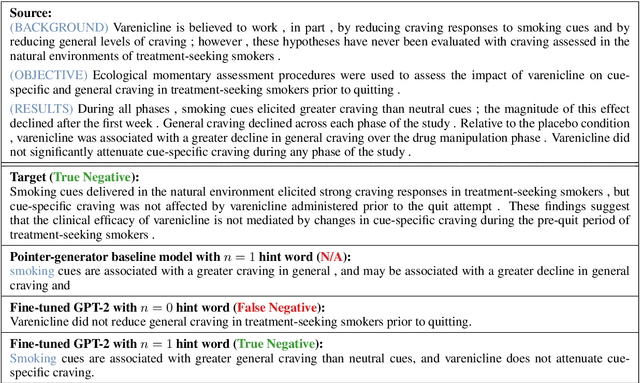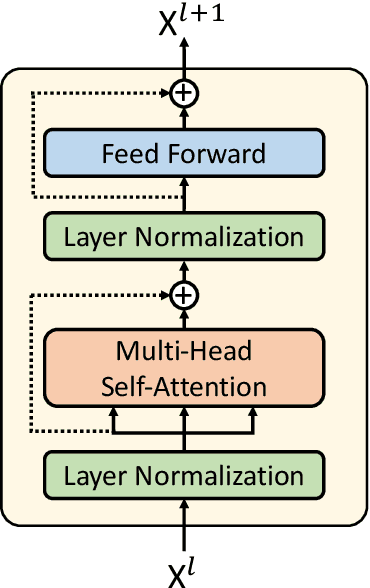Towards Understanding of Medical Randomized Controlled Trials by Conclusion Generation
Paper and Code
Oct 03, 2019



Randomized controlled trials (RCTs) represent the paramount evidence of clinical medicine. Using machines to interpret the massive amount of RCTs has the potential of aiding clinical decision-making. We propose a RCT conclusion generation task from the PubMed 200k RCT sentence classification dataset to examine the effectiveness of sequence-to-sequence models on understanding RCTs. We first build a pointer-generator baseline model for conclusion generation. Then we fine-tune the state-of-the-art GPT-2 language model, which is pre-trained with general domain data, for this new medical domain task. Both automatic and human evaluation show that our GPT-2 fine-tuned models achieve improved quality and correctness in the generated conclusions compared to the baseline pointer-generator model. Further inspection points out the limitations of this current approach and future directions to explore.
 Add to Chrome
Add to Chrome Add to Firefox
Add to Firefox Add to Edge
Add to Edge